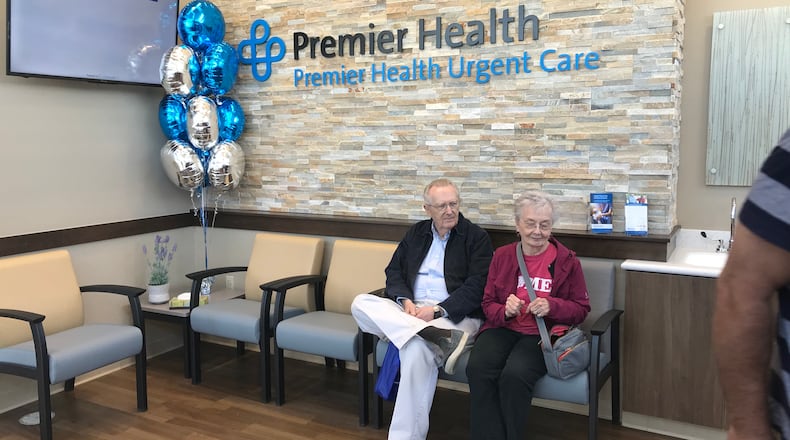Patients have been shifting to convenient options where they can be quickly seen, from urgent cares, to e-visits to retail clinics.
MORE: How convenience is reshaping local health care
This has boosted a sharp growth in urgent cares in recent years, with about 8,700 urgent cares now in the U.S., up from 6,400 in 2014, according to the Urgent Care Association.
“I think consumers want convenience and they want access and we tried to locate these in neighborhoods where people shop and live,” said Paula Thompson, CEO of Fidelity Health Care, which is the Premier division that operates the urgent cares.
Other area health systems in the Dayton area have also invested in convenience care.
Within the last year, Dayton Children’s Hospital opened a new urgent care in Huber Heights and an express clinic in Springboro, similar to a retail clinic found in a grocery store.
Kettering Health Network operates urgent cares in Huber Heights, Beavercreek and Xenia and in November announced an information sharing deal with Little Clinics in 10 area Krogers.
Many hospital systems have ventured into owning urgent cares or operating them as a joint venture, Allan Baumgarten, Minnesota-based consultant and author of the Ohio Health Market Review.
He said there are four main reasons for a hospital system to add urgent cares.
They divert inappropriate ER visits. They extend the health system’s footprint, especially into areas with higher household income and where many households have good employer group insurance. They expand the population getting care inside that health system. And lastly, they help hospital networks connect with certain populations, such as millennials, who have no loyalty to health systems or clinics and who value convenience and patient experience, he said.
The eight Premier urgent cares — soon to be nine — served more patients than the health system first predicted, with a total 17,638 patient visits in 2018, Thompson said.
Thompson said the urgent cares have had a good reception and patients have rated the centers a 4.8 on a scale of 5 when asked for feedback after visits.
The urgent cares are a new business line for the health network, which had $1.8 billion in revenue for 2018 and operates Miami Valley Hospital, Atrium Medical Center and Upper Valley Medical Center.
Thompson said they provide a care option for patients who aren’t able to connect with their primary care provider and it provides a better alternative for immediate care than an unnecessary ER visit.
MORE: Dayton Children's opening Springboro clinic
Premier’s plans for the new centers were first announced December 2017 and the first two opened in February 2018.
Along with Beavercreek, the locations are in Centerville, Englewood, Huber Heights, Mason, Miamisburg, Springboro, Troy and Vandalia.
Thompson said Premier officials are evaluating opportunities but don’t have immediate plans to open any more urgent cares.
About the Author
